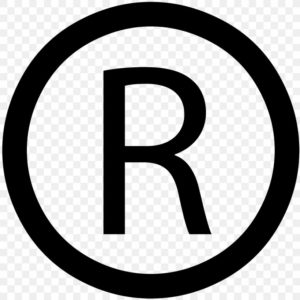Trademark Law
 A trademark refers to the word, logo, or phrase that recognizes the source of goods or services. Trademark law gives protection to a business’, brand or a commercial identity by not encouraging other companies from adopting a logo or name that might be “confusingly similar” to a trademark that already exists. The objective is to allow consumers identify the producers of goods and services with ease and avoid any confusion.
A trademark refers to the word, logo, or phrase that recognizes the source of goods or services. Trademark law gives protection to a business’, brand or a commercial identity by not encouraging other companies from adopting a logo or name that might be “confusingly similar” to a trademark that already exists. The objective is to allow consumers identify the producers of goods and services with ease and avoid any confusion.
United States trademark law is primarily governed by the Lanham Act. Common law trademark rights are obtained automatically when a commercial uses a name or logo in commerce, and they can be enforced in in state courts.
Marks registered with the US Patent and Trademark Office are granted a greater degree of protection in federal courts in comparison to the unregistered marks—both registered and unregistered trademarks are given some degree of federal protection under the Lanham Act 43(a).
Attorneys at SBEMP (Slovak, Baron, Empey, Murphy & Pinkney) law firm provides professional legal advice and services to clients in Palm Springs, Palm Desert, Rancho Mirage, Inland Empire, Orange County, Coachella Valley, Costa Mesa, San Diego, New Jersey, New York, and surrounding locations.
Purpose
Trademark law gives protection to the goodwill of the company, and assists consumers effortlessly classify the source of the things they buy.
In principle, trademark law, by stopping others from copying a source-identifying mark, eliminates the customer’s expense of shopping and making decisions regarding purchasing, for it easily and quickly assures a potential customer that this item—the item with this mark—is manufactured de by the same producer as other similarly marked items that he or she liked (or disliked) in the past.
The law also gives assurance to the manufacturer that it (and not an imitating competitor) will earn all the financial as well as the reputation-related rewards that are associated with the desired product. The law in this way gives encouragement to the manufacture of quality products. At the same time it also deters those who wish to sell products of an inferior quality by take advantage of the consumer’s inability quickly to assess the quality of an item offered for sale.
Benefits
Trademark protection depends on use in commerce, not registration. Registered as well as non-registered trademarks both are eligible for protection under the Lanham Act. However, registration (on the “Principal Register”) offers a number of advantages:
- Trademark rights across the nation
- A registered mark is assured to be a valid trademark
- The owner listed on the registration is believed to be the true owner of the trademark rights
- Assumption that the mark has not been “abandoned” due to non-use
- Access to the federal court for trademark infringement lawsuits
- Incontestability: After a period of five years of unchallenged registration, a trademark is qualified to become “incontestable.” An incontestable mark cannot be challenged on the basis that it is “merely descriptive.”
- Constructive notice: This means infringers cannot claim that they were unaware of a registered trademark
- Enhanced remedies for infringement, including the possibility of triple damages and criminal penalties for forging (it is notable that counterfeiting is a more culpable kind of infringement)
- Right to have the US Customs Service stops others from importing goods bearing infringing marks
Application Process
Trademarks can be registered online. The USPTO levies a fee for online applications of trademark. The process usually takes about six months from initial application to the final stage of registration. It is common practice to take the services of a trademark attorney to file the application on behalf of the future owner.
Lawyers at the SBEMP law firm serve clients from Palm Springs, Palm Desert, Rancho Mirage, Inland Empire, Orange County, Coachella Valley, Costa Mesa, San Diego, New Jersey, New York, and nearby locations for a range of legal practice areas.
For more information or to request a consultation please contact the law offices of SBEMP (Slovak, Baron, Empey, Murphy & Pinkney) by clicking here.
SBEMP LLP is a full service law firm with attorney offices in Palm Springs (Palm Desert, Inland Empire, Rancho Mirage), CA; Indian Wells, CA; Costa Mesa (Orange County), CA; San Diego, CA; New Jersey, NJ; and New York, NY.
DISCLAIMER: This blog post does not constitute legal advice, and no attorney-client relationship is formed by reading it. This blog post may be considered ATTORNEY ADVERTISING in some states. Prior results do not guarantee a similar outcome. Additional facts or future developments may affect subjects contained within this blog post. Before acting or relying upon any information within this newsletter, seek the advice of an attorney.
